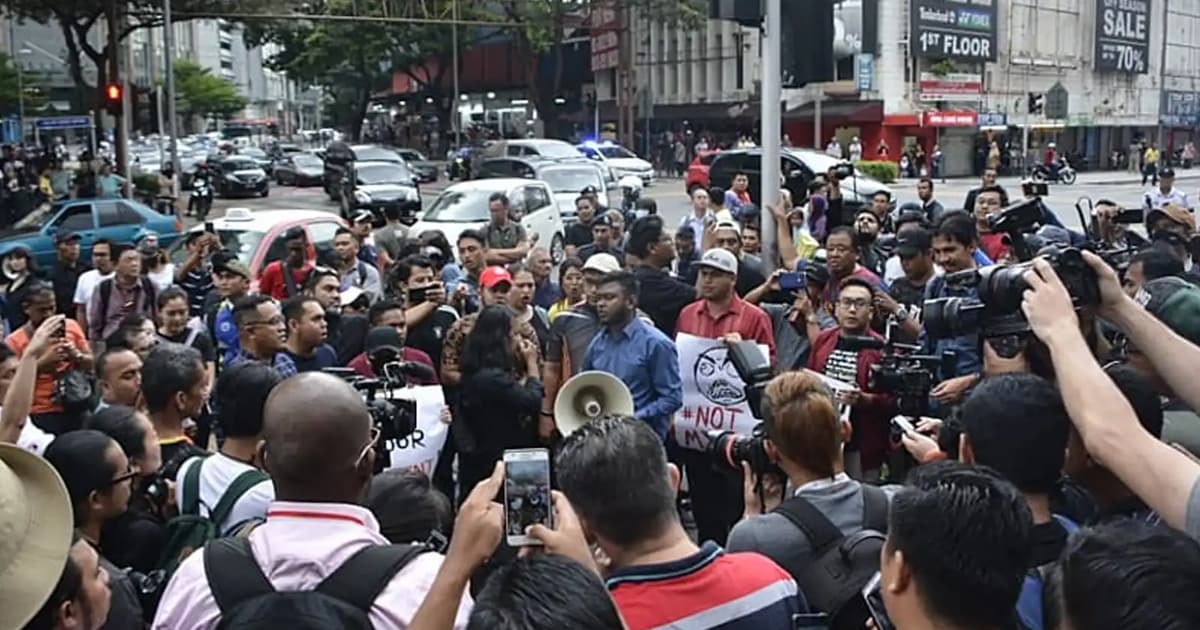
From Mable Leong
Last month, a group of us organised a charity swim. On the surface, it seemed simple enough: some swimmers, a stretch of open water and a cause we cared about.
But behind the scenes, the preparation was anything but simple. We needed permits from the marine park, marine department, police and even the fire and rescue department. Not because these agencies were expected to rescue us – our team had to design our own rescue plan – but when you move people across open water, the risk is real. Someone could die. And the authorities needed to be on the alert.
That experience came to mind in the light of the recent Federal Court judgment in the Amir Hariri bin Abd Hadi case, delivered by Chief Justice Tengku Maimun Tuan Mat before her retirement. The court unanimously struck down Section 9(5) of the Peaceful Assembly Act 2012, which made it an offence punishable by a fine of up to RM10,000 for organisers of assemblies for failing to notify police beforehand.
The court’s reasoning was clear. Criminalising non-notification puts too heavy a burden on the constitutional right to assemble peacefully. It chills legitimate gatherings. It punishes silence, not harm. In the court’s view, notification should be encouraged, but failure to notify should not be a crime.
Many lawyers and civil society groups have celebrated this decision as a step forward for human rights. And we understand why. For decades, Malaysia’s laws have tended to view assembly first as a threat to public order rather than an expression of civic freedom and fundamental liberties.
By removing criminal liability, the court reaffirmed that peaceful assembly is a right, not a privilege to be granted at the state’s discretion. But here’s where the uneasiness sets in. While the Court affirmed peaceful assembly is a right, the moral question of responsibility was virtually left unaddressed.
If failure to give notice no longer comes with a penalty, the giving of notice becomes superfluous and non-mandatory. It becomes optional, an act of moral conscience rather than legal obligation. Without such legal obligation, assemblies can be mobilised at any point without warning. And while many organisers act responsibly, what happens when things spiral out of control? And when things go wrong, whose responsibility is it?
The court was right to protect liberty. Yet liberty without responsibility can expose others to harm – shopkeepers caught in a march, bystanders stuck in traffic or rival groups clashing unexpectedly. The essence of human rights does not rest only on liberty and freedom; it rests also on the need for corresponding duties.
Who will take responsibility?
The amicus curiae in this case suggested ways to make notices less restrictive, such as simplifying procedures or narrowing their scope. But none of those ideas address the deeper issue: how do we ensure notice is actually given? A notice system, no matter how well-intentioned, collapses if compliance is voluntary.
And that’s the Catch-22. On one hand, the court says assemblies can proceed peacefully, albeit with the giving of notice becoming superfluous. On the other hand, police are still responsible for ensuring order on the ground – yet may not know an assembly is under way or may not have the time to make the necessary preparations for law and order.
That gap doesn’t just burden the police. It shifts the weight of responsibility almost entirely onto the organisers with the risk on the people themselves.
Can organisers realistically bear that burden alone? What if violence breaks out or property is damaged? Who compensates the victims? Who ensures emergency services are ready? A “should notify” framework feels fragile compared to a “must notify” one.
Back to the swim event. If even a charity activity – non-political, peaceful and seemingly harmless – requires permits to safeguard lives, why should mass gatherings on busy streets be treated more lightly? We did not seek permission because we feared being stopped. We sought permits because lives depended on coordination.
Notification is not about suppressing freedom. It is about ensuring safety. Ambulances, exit routes, crowd control – these are not abstract concerns. They are the difference between a peaceful assembly and a tragedy.
Malaysia is still on its journey towards stronger institutions and effective reforms. This judgment marks an important milestone in strengthening our civil liberties. But we must also grapple with the hard questions it leaves behind.
Rights and responsibilities are two sides of the same coin. Freedom of assembly is essential to a healthy democracy. Yet safeguarding that freedom requires more than just trust in the goodwill of any organisers. It requires systems that balance liberty with accountability, expression with safety.
The Federal Court has spoken on what the state cannot do: it cannot criminalise non-notification. But it remains for us, as citizens, organisers and policymakers to decide what we must do – how to create structures that safeguard and honour both freedom and responsibility.
Because whether it’s swimmers in the sea or marchers in the street, the principle is the same: when people’s lives are in your hands, you cannot simply hope for the best. You prepare. You notify. You take responsibility.
The court has protected our right to assemble freely. It’s time now for the people to tackle the hard question and make the right to assembly peacefully safe and responsible.
Mable Leong is a former litigation lawyer and an FMT reader.
The views expressed are those of the writer and do not necessarily reflect those of FMT.






